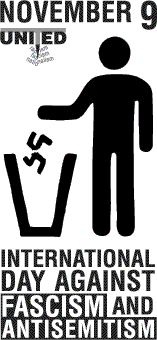I continue with the Surname Saturday blogging theme -
Discuss a surname and mention its origins, its geographical location(s) and how it fits into your genealogy research.
Dudelsack / Dudelczak
The origin of the surname is a bit unclear. There is a German bagpipe called a
Dudelsack. However, the word 'Dudel' is a diminutive for "David" in Yiddish, so there's a strong possibility the surname is
patronymic in origin. Spelling of the surname varies.
Four Dudelsack siblings immigrated to America in the late 1800s. My great great grandfather Selig, a brother Yidel, a sister, Toba, and a sister Zlota. Toba had married Aaron Oberman prior to immigration. Selig and Yidel both changed their surnames upon arriving in America. Yidel Americanized his given name to Julius, Toba went with Tillie, and Zlota chose Lottie. Family lore says there were four siblings who remained in Russia. Nothing beyond their names are known.
The numbering below follows the
d'Aboville system. I've emboldened my direct ancestors. It's currently unclear what town in Russia the family originated. It was most likely in the region of
Volhynia. The four families started in America in St. Louis. Most of the Odelsons moved to Chicago, and the Goodmans moved to Tulsa.
3. Samuel Zvi “Harry” Dudelsack married Gitel Slupsky
3.1 Belle Dudelsack
3.2 Gershon Dudelsack
3.3 Selma Dudelsack
3.4 Sprinsa Dudelsack
3.5 Toba Dudelsack ( - 1935) Married Aaron Oberman - Poland, St. Louis
3.6 Yidel “Julius” Dudelsack ( - 1917) married Jennie - Poland, St. Louis, Chicago
3.7 Selig Dudlesack (1860-1915) married Anna Perlik - Poland, St. Louis
3.8 Lottie Dudelsack (1861-1939) married Aaron Getz and Judal Goldstein - Poland, St. Louis, Tulsa
3.5.1 Manuel Harry Oberman (1886-1946) married Rose Askuvich
3.5.2 Samuel Oberman (1890- ?)
3.5.3 Minnie Oberman (1893-1974) married Louis Felman
3.5.4 Ben Oberman (1898-1969) married Geraldine Rosenthal
3.5.5 Joseph Oberman (1900-1967) married Fannie
3.5.6 Oscar Oberman (1904-1969) married (1) Lassie Brown (2) Anna Brodak
3.6.1 Samuel Odelson (1877-1954) married Rose Gordon
3.6.2 Pearl Odelson (1884-1957) married Morris Feldman
3.6.3 Louis Odelson (1886-?)
3.6.4 Sarah Odelson (1894-1987)
3.6.5 Harry Odleson (1896-1971) married Sonia Blak
3.7.1 Harry Feinstein (1884-1933) married (1) Dora Servinsky (2) Grace - Poland, St. Louis
3.7.2 Herman Feinstein (1886-1963) married Anna Blatt - Poland, St. Louis
3.7.3 Benjamin Feinstein (1888-1952) married Nevada Rowe Amacker - Poland, St. Louis
3.7.4 Pearl Feinstein (1890-1967) married Edward Louis Oxenhandler - Poland, St. Louis
3.7.5 Morris Feinstein (1893-1926) married Edna Frager - St. Louis
3.7.6 David Feinstein (1895-1896) - St. Louis
3.7.7 Aaron Feinstein (1898-1988) - St. Louis
3.7.8 Joseph Feinstein (1899-1901) - St. Louis
3.7.9 Rose Feinstein (1901-1985) married Abe Gold - St. Louis
3.8.1 Samuel Getz (1881-1943) - St. Louis
3.8.2 Sarah Getz (1890-1980) married (1) Frank Goodman (2) Theodore Kallmeyer - St. Louis, Tulsa
3.6.1.1 Anne Odelson (1900-1978) married Jack Kaplan
3.6.1.2 Harry Odelson (1902-1974) married Ida Taitel
3.6.1.3 Jacob Odleson (1904-1986)
3.6.1.4 Ida Odelson (1906-1994) married Harry Berz
3.6.1.5 Oscar Odelson (1908-1978) married Betty
3.6.1.6 Joseph Odelson (1910-1985)
3.6.1.7 Ben Odelson (1912-2006) married Bernice Bernstein
3.6.1.8 Irving Odelson (1915-2010) married Esther Siegel
3.6.1.9 Meyer Odelson (1916-2001) married Minnie Novey
3.6.1.10 Julius Odelson (1918-1966) married Jennie David
3.6.1.11 Belle Odelson (1919-?) married Irving Epstein
3.6.1.12 Sidney Odelson (1921-2010) married Sylvia Fox
3.6.1.13 Emanuel Odelson (1922-?)
3.6.1.14 Roy Odelson (1924-2001)
3.7.1.1 Sidney Feinstein (1906-1975)
3.7.1.2 Adeline Feinstein (1908-1966) married (1) Arthur Meyer (2) Sam Robinson
3.7.1.3 Alvin Feinstein (1910-1934)
3.7.1.4 Willard Feinstein (1912-1965) married Shirley Fogel
3.7.1.5 Robert Seymour Selig Feinstein (1915-2008) married Mary Margaret Cedillo
3.7.2.1 Bernard Feinstein (1913-1968) married Belle Hoffman
3.7.2.2 Belle "Sissie" Feinstein (1914-2002) married Melvin Lester Newmark
3.7.2.3 Seymour "Babe" Feinstein (1917-1999) married Leonore Miller
3.7.3.1 Benjamin Feinstein, Jr. (1915-2000) married Dorothy Creighton
3.7.3.2 Ruth Feinstein (1921-2004) married Earl Jacobs
3.7.4.1 Willard Oxenhandler (1914-1995) married Sarah Steinbaum
3.7.4.2 Selig Seymour Oxenhandler (1916-1987) married Joyce Schmuckler
3.7.4.3 Sigmond Oxenhandler (1919-1987)
3.7.5.1 Marvin Feinstein (1919-1963) married Marilyn Steinberg
3.7.5.2 Dolores Feinstein (1920-2001) married Paul Zigler
3.7.5.3 Seymour Feinstein (1924-2002) married Dorislee Blank
3.8.2.1 Harry Goodman (1906-1975) married Dorothy Werbner
3.8.2.2 Gertrude Goodman (1908-?) married Jerome Naron
3.8.2.3 Frances Goodman (1910-1992)
3.8.2.4 Edrea Ann Goodman (1923-2010) married Julian Jack Appleton
My number is 3.7.2.2.1.3















